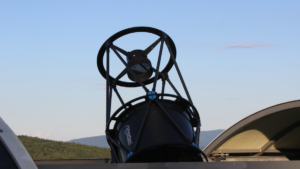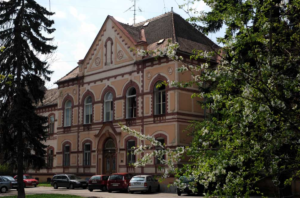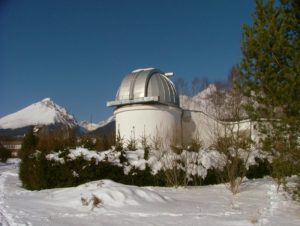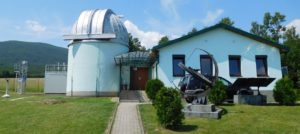The astrophysical group of the Department of Theoretical Physics and Astrophysics (DTFA) was formed in 1999-2000 when with collaboration with the Astronomical Institute of SAS, the department started to participate in the teaching of various disciplines of astronomy and astrophysics, which has allowed master students of physics to specialize in this field.
Students can study astronomy and astrophysics in the second, Master’s degree of university education. It is actually the 4th and 5th year of university studies. Formally it is provided by the DTFA. However, some introductory lectures begin in the last year of bachelor study (3rd year) on the foundations of astronomy and astrophysics.
Lectures cover all basic fields of astronomy and astrophysics, like the solar system, Sun, stars, their structure and evolution, galaxies and extrasolar planets, as well as observational techniques and necessary software and programming skills. Teaching is provided by our internal staff teachers and also by external teachers from the Astronomical Institute of SAS. We also place emphasis on practical astronomical observations and data reduction techniques. Students take part in several short and long-term practices at different observatories and institutes.

Students are engaged in scientific research by their master’s thesis. Subjects can be selected, within possibilities, by their individual interests. However, bachelor students may also choose subjects from the field of astronomy and astrophysics for their thesis in the 3rd year of study. We prefer individual access and work with each student.
In cooperation with Vihorlat Observatory and Astronomical Observatory on Kolonica Saddle, we operate several university telescopes at our technological station called Kolonica Observatory. For our observations, we can use also telescopes of Vihorlat Observatory, as well as, after an agreement, telescopes from other cooperating institutes.
We have formal and informal cooperation with a number of leading world universities and astronomical institutions (e.g. Astronomical Institute of the Academy of Sciences of the Czech Republic in Ondřejov, Czech Space Office, Masaryk University in Brno, Charles University in Prague, Max Planck Institute for Astrophysics, Suhora Observatory in Poland, Odesa University in Ukraine and others). This collaboration can also be used by students, both within the ERASMUS+ program for study visits, but also for individual scientific projects.


